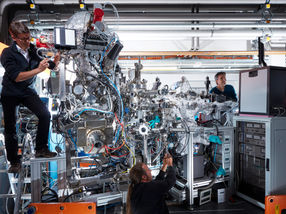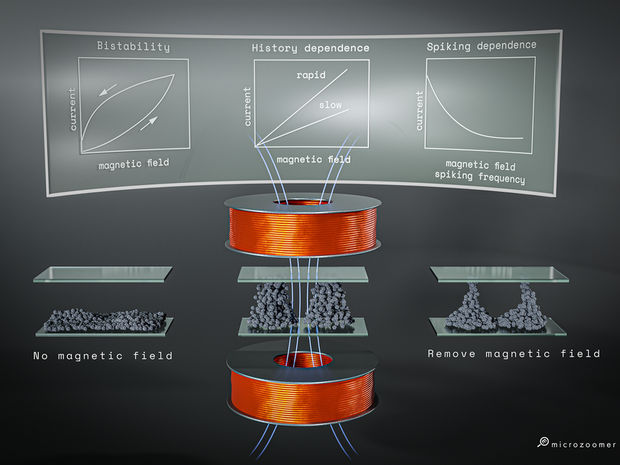New material could boost data storage, save energy
Advertisement
North Carolina State University engineers have created a new material that would allow a fingernail-size computer chip to store the equivalent of 20 high-definition DVDs or 250 million pages of text, far exceeding the storage capacities of today's computer memory systems.
Led by Dr. Jagdish "Jay" Narayan, John C.C. Fan Family Distinguished Professor of Materials Science and Engineering and director of the National Science Foundation Center for Advanced Materials and Smart Structures at NC State, the engineers made their breakthrough using the process of selective doping, in which an impurity is added to a material that changes its properties. The process also shows promise for boosting vehicles' fuel economy and reducing heat produced by semiconductors, a potentially important development for more efficient energy production.
Working at the nanometer level — a pinhead has a diameter of 1 million nanometers — the engineers added metal nickel to magnesium oxide, a ceramic. The resulting material contained clusters of nickel atoms no bigger than 10 square nanometers, a 90 percent size reduction compared to today's techniques and an advancement that could boost computer storage capacity.
"Instead of making a chip that stores 20 gigabytes, you have one that can handle one terabyte, or 50 times more data," Narayan says.
Information storage is not the only area where advances could be made. By introducing metallic properties into ceramics, Narayan says engineers could develop a new generation of ceramic engines able to withstand twice the temperatures of normal engines and achieve fuel economy of 80 miles per gallon. And since the thermal conductivity of the material would be improved, the technique could also have applications in harnessing alternative energy sources like solar energy.
The engineers' discovery also advances knowledge in the emerging field of "spintronics," which is dedicated to harnessing energy produced by the spinning of electrons. Most energy used today is harnessed through the movement of current and is limited by the amount of heat that it produces, but the energy created by the spinning of electrons produces no heat. The NC State engineers were able to manipulate the nanomaterial so the electrons' spin within the material could be controlled, which could prove valuable to harnessing the electrons' energy. The finding could be important for engineers working to produce more efficient semiconductors.
Most read news
Other news from the department science

Get the chemical industry in your inbox
By submitting this form you agree that LUMITOS AG will send you the newsletter(s) selected above by email. Your data will not be passed on to third parties. Your data will be stored and processed in accordance with our data protection regulations. LUMITOS may contact you by email for the purpose of advertising or market and opinion surveys. You can revoke your consent at any time without giving reasons to LUMITOS AG, Ernst-Augustin-Str. 2, 12489 Berlin, Germany or by e-mail at revoke@lumitos.com with effect for the future. In addition, each email contains a link to unsubscribe from the corresponding newsletter.

































































